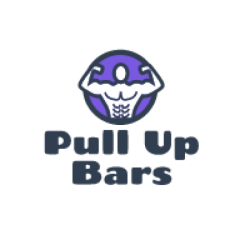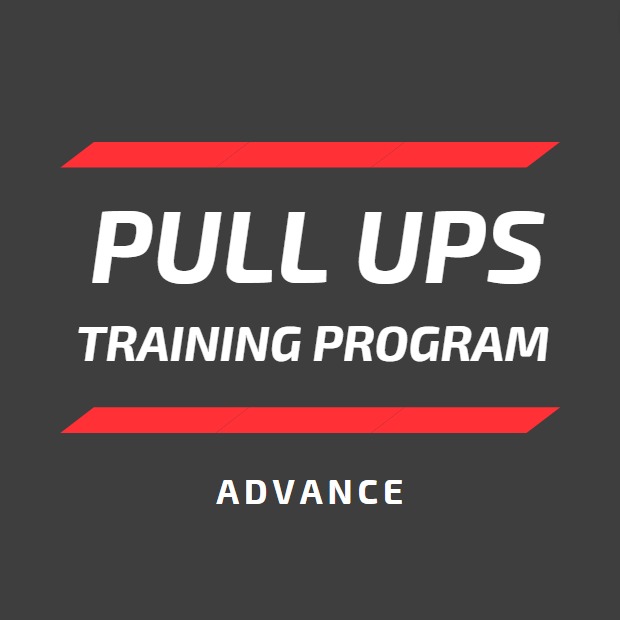Advanced pull-up training program is a great way to improve your pull-up strength, and can also help you build muscle mass in the upper body.
Benefits Pull Up Workout
Improved strength and power in the shoulders, arms and back muscles
Increased muscle size in the chest, shoulders and triceps areas
Better balance between left and right sides of the body
Advanced Pull-Up Variances
There are a number of advanced pull-up variancesthat have become popular in recent years. These include:
Negatives – This involves starting from the top position and lowering yourself down slowly, using a chair or other support to help you if needed.
Assisted Pull-Ups – Using an assisted machine, such as a lat pulldown machine or resistance band attached to something sturdy like a post or tree branch. This allows you to use more weight than you could manage on your own, which builds strength faster than regular pull-ups alone would do so without risking injury from overuse of heavy weights too soon in your training schedule.
Negative Reps – This is similar to negatives but instead of starting at the top position and lowering yourself down slowly (which would be considered positive), negative reps start at ground level and lift up as fast as possible before letting go again; this will allow for even greater gains in strength than normal because it allows us humans beings who aren’t made outta steel yet (or maybe never will be) lift heavier loads than we normally would be able to handle otherwise.”
Safety Considerations
Safety is a major concern when performing advanced pull-ups. The following are some of the most important safety considerations:
Warm up before you work out. A proper warm-up will help prevent injuries and improve performance by increasing blood flow to your muscles, which reduces injury risk.
Use proper form when doing the exercise, especially if you’re using weights or bands attached to your body as part of an assisted-pull up program (see below). Improper technique can lead to injury if done incorrectly over time–for example, if you use too much weight and don’t have enough strength in your core muscles or arms, then those muscles might not be able to support the extra force being applied on them during each repetition of this type of movement; eventually they’ll give out under pressure and cause injury elsewhere in the body!
So it’s important that all movements are done correctly before moving forward with any sort of progression plan like this one.
We recommend you to visite our Pull-up Safety Guide for complete recomendations before starting a program.
Start Your Training Here
If you did 14 or more pull-ups on the initial test. This Advance Training Program is what will allow you to reach the final goal to train pull ups. A classic pull-up bar is required to perform this phase.

Rest and recovery are critical to the success of the programs and should be included as prescribed in the program. Also remember to warm up and stretch during your exercise days.
Before starting this program, we encourage you to read the Safety first Guide from our web site.
Advance Training Program Step By Step
Week 1 Training Tasks
Training Days : 3 days
- Warming Up
- 12 Pull Ups
- 10 Chin Ups
- 9 Pull Ups
- 9 Chin Ups
- 8 Pull Ups
- Stretching
- Warming Up
- 12 Pull Ups
- 10 Chin Ups
- 10 Pull Ups
- 9 Chin Ups
- 9 Pull Ups
- Stretching
- Warming Up
- 13 Pull Ups
- 10 Chin Ups
- 10 Pull Ups
- 9 Chin Ups
- 8 Pull Ups
- Stretching
Week 2 Training Tasks
Training Days : 3 days recommended on Monday, Wednesday and Friday
- Warming Up
- 15 Pull Ups
- 11 Chin Ups
- 10 Pull Ups
- 9 Chin Ups
- 8 Pull Ups
- Stretching
- Warming Up
- 15 Pull Ups
- 14 Chin Ups
- 11 Pull Ups
- 9 Chin Ups
- 8 Pull Ups
- Stretching
- Warming Up
- 14 Pull Ups
- 14 Chin Ups
- 14 Pull Ups
- 12 Chin Ups
- 11 Pull Ups
- Stretching
Week 3 Training Tasks
Training Days : 3 days recommended on Monday, Wednesday and Friday
- Warming Up
- 15 Pull Ups
- 14 Chin Ups
- 10 Pull Ups
- 12 Chin Ups
- 10 Pull Ups
- Stretching
- Warming Up
- 15 Pull Ups
- 14 Chin Ups
- 11 Pull Ups
- 13 Chin Ups
- 10 Pull Ups
- Stretching
- Warming Up
- 14 Pull Ups
- 14 Chin Ups
- 14 Pull Ups
- 12 Chin Ups
- 11 Pull Ups
- Stretching
Week 4 Training Tasks
- Warming Up
- 17 Pull Ups
- 10 Chin Ups
- 16 Pull Ups
- 10 Chin Ups
- 14 Pull Ups
- Stretching
- Warming Up
- 14 Pull Ups
- 19 Chin Ups
- 16 Pull Ups
- 10 Chin Ups
- 14 Pull Ups
- Stretching
- Warming Up
- 19 Pull Ups
- 13 Chin Ups
- 14 Pull Ups
- 13 Chin Ups
- 11 Pull Ups
- Stretching
Week 5 Training Tasks
Training Days : 3 days recommended on Monday, Wednesday and Friday
- Warming Up
- 22 Pull Ups
- 13 Chin Ups
- 11 Pull Ups
- 10 Chin Ups
- Max Pull Ups
- Stretching
- Warming Up
- 24 Pull Ups
- 10 Chin Ups
- 11 Pull Ups
- 13 Chin Ups
- Max Pull Ups
- Stretching
- Warming Up
- 26 Pull Ups
- 10 Chin Ups
- 11 Pull Ups
- 10 Chin Ups
- Max Pull Ups
- Stretching
Week 6 Training Tasks
Training Days : 3 days recommended on Monday, Wednesday and Friday
- Warming Up
- 30 Pull Ups
- 15 Chin Ups
- 10 Pull Ups
- 15 Chin Ups
- Max Pull Ups
- Stretching
- Warming Up
- 33 Pull Ups
- 16 Chin Ups
- 11 Pull Ups
- 13 Chin Ups
- Max Pull Ups
- Stretching
- Warming Up
- 35 Pull Ups
- 10 Chin Ups
- 11 Pull Ups
- 10 Chin Ups
- Max Pull Ups
- Stretching
Week 7 Training Tasks
Training Days : 3 days recommended on Monday, Wednesday and Friday
- Warming Up
- 30 Pull Ups
- Recuperation Rest
- 22 Chin Ups
- Recuperation Rest
- Max Pull Ups
- Stretching
- Warming Up
- 34 Pull Ups
- Recuperation Rest
- 20 Chin Ups
- Recuperation Rest
- Max Pull Ups
- Stretching
- Warming Up
- 35 Pull Ups
- Recuperation Rest
- 20 Chin Ups
- Recuperation Rest
- Max Pull Ups
- Stretching
Week 8 Training Tasks
Test your pull up training result on Monday.
- Pre training : Do a warm up
- Training : Go for the 50 pull up goal.
- Post training : Stretching




